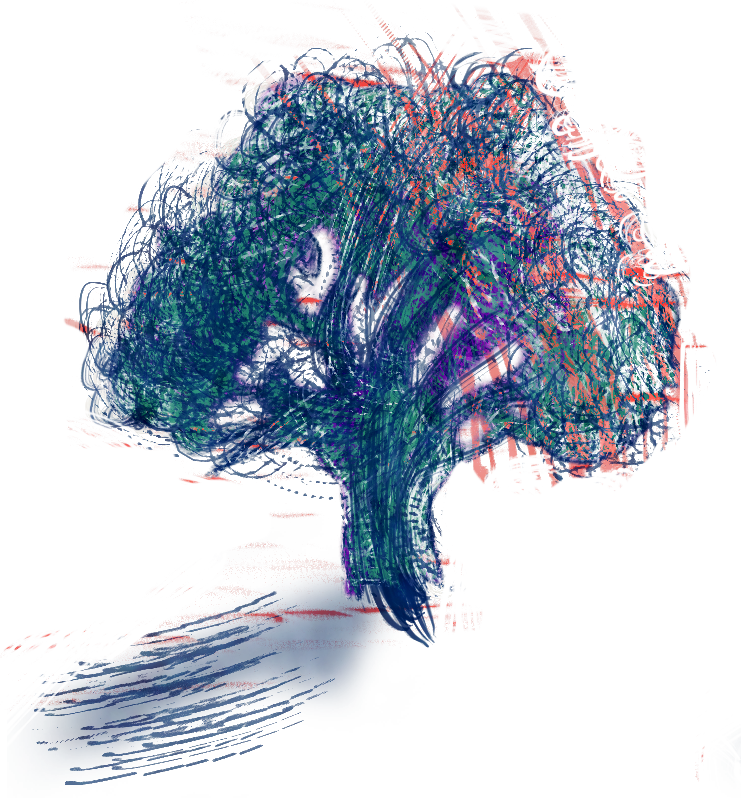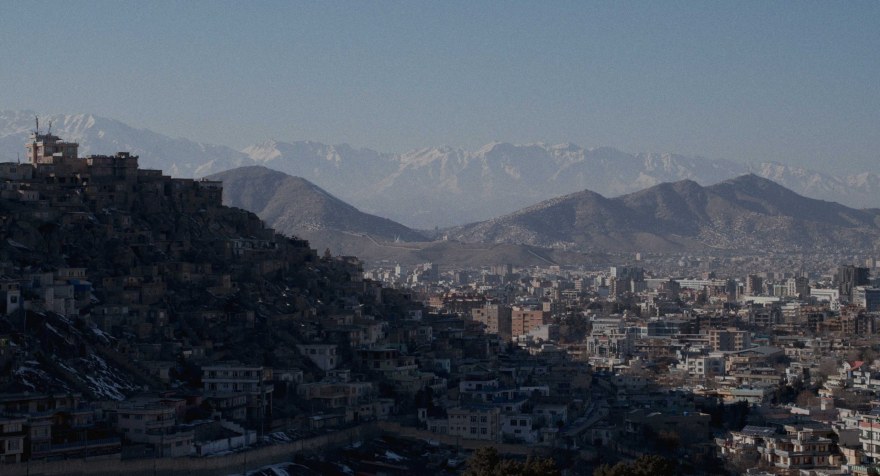Lunch avec Koha wa Tapaha (Collines et Montagnes)
Entretien avec Salar Pashtoonyar, réalisateur de Koha wa Tapaha (Collines et Montagnes)

Deux choses. C’était avant tout un choix créatif, mais aussi une solution pour surmonter un obstacle majeur. Du point de vue créatif, je voulais que son histoire soit celle de tous les Afghans en superposant sa voix sur des images de civils. Après l’invasion soviétique à la fin des années 1970, la moitié de la population afghane d’avant-guerre était décédée, blessée ou déplacée. D’une manière ou d’une autre, directement ou indirectement, toutes les personnes que l’on voit dans le film ont été affectées par la guerre. Ensuite, quand les Talibans ont repris Kaboul, leur première décision a été d’interdire aux femmes de participer à des films, notamment en tant qu’actrices. Conséquence : un obstacle de plus à surmonter dans le domaine de la réalisation cinématographique pour moi. Pour contourner cette interdiction, j’ai donc décidé de ne pas la faire apparaître à l’écran.

Cette collaboration était sans aucun doute unique : on a travaillé ensemble à distance. Et c’était une première pour tous les deux. À cause des lois du régime taliban, et pour éviter les problèmes avec les autorités, nous ne nous sommes jamais rencontrés pendant la réalisation du film. Je lui envoyais le texte, avec des notes pour lui donner des instructions. Ensuite, elle s’enregistrait et m’envoyait les fichiers, puis je les écoutais et lui transmettais mes commentaires. On a échangé un nombre incalculable de fois avant d’être tous les deux entièrement satisfaits du résultat final. J’avais déjà collaboré avec Fereshta dans le cadre du tournage de mon précédent court métrage de fiction, Bad Omen (Mauvais présage), lui aussi sélectionné au festival de Clermont-Ferrand en 2021. Elle est de loin l’une des plus grandes actrices afghanes. Pour Koha wa Tapaha, j’étais décidé depuis le début à travailler à nouveau avec elle pour garder le film aussi authentique que possible. Je voulais aussi garder le cinéma afghan en vie en collaborant avec une femme directement affectée par cette interdiction. Cela aurait été bien plus facile de faire appel à une personne n’habitant pas en Afghanistan, mais cela nous aurait privés de l’émotion brute de la voix de Fereshta.


J’ai toujours l’Afghanistan dans un coin de ma tête et dans mon cœur. Si j’ai réalisé ce film, c’est notamment parce qu’une nuit j’ai pris conscience que, suite au retrait des forces américaines, le pays n’était plus en guerre. Pour la première fois de ma vie, il n’y avait plus de conflit armé en cours là-bas. Mais je connais l’Histoire. La dernière fois, quand la superpuissance soviétique a été contrainte de se retirer, l’Afghanistan a sombré dans une guerre civile sanglante, au cours de laquelle Kaboul, la capitale, a été détruite. Je ne peux pas m’empêcher d’avoir des pensées ambivalentes vis-à-vis du futur. Tout cela m’a fait prendre conscience de l’importance historique de la phase que nous traversons. Je me suis dépêché de consigner visuellement les habitants de Kaboul, les collines et les montagnes, afin de garder une trace de l’époque actuelle pour les générations futures. Je ne sais pas ce qui attend le pays et les Afghans, mais ces images auront une signification particulière pour les personnes comme moi à l’avenir. Cela a été facile de choisir ces images : Kaboul, comme presque tout le reste de l’Afghanistan, ressemble à un tableau. La ville est entourée de collines et de montagnes.

Je me sens moralement obligé d’informer et d’éduquer le public au sujet des Afghans et de l’Afghanistan par le biais de mes films. J’aime donner aux spectateurs un aperçu de l’Afghanistan caché et ignoré. C’est pour cela que je construis mes films autour des événements qui ont marqué le pays après les années 1970. Malheureusement, l’Afghanistan semble être devenu le champ de bataille des superpuissances, et ce pour toujours. Si vous dites ou lisez le mot « Afghanistan », les premières images qui vous viennent à l’esprit sont très probablement liées à la guerre. Pour autant, l’Afghanistan et son peuple ne doivent pas être réduits à cette idée. Nos histoires ont été racontées avec des œillères. En réalisant des films, je peux les figer de manière artistique, tout en racontant à un plus large public à quoi l’Afghanistan ressemblait avant ces guerres et comment nous en sommes arrivés là. Nous avons tous des préjugés, façonnés par les informations auxquelles nous sommes exposés. Je ne peux pas contrôler la réaction du public, mais je suis convaincu que les spectateurs auront un nouveau point de vue sur l’Afghanistan et comprendront mieux le pays après avoir vu mon court métrage.


Il s’agit d’un court métrage d’animation : Père et fille de Michaël Dudok de Wit C’est l’histoire assez simple d’une petite fille qui grandit, mais qui garde en elle le souvenir de son père absent. C’est un film très puissant et très émouvant.

Le festival international du court métrage de Clermont-Ferrand est le roi incontesté des festivals consacrés aux courts métrages. La programmation, les opportunités de rencontres et tout l’environnement sont absolument uniques. Je suis impatient de m’y rendre.
Pour voir Koha wa Tapaha (Collines et Montagnes), rendez-vous aux séances de la compétition internationale I3.








